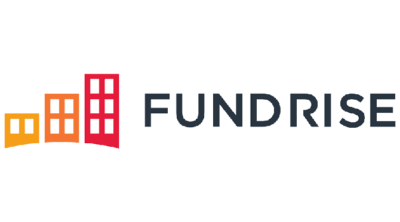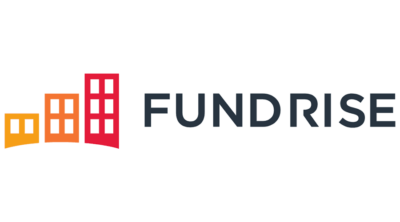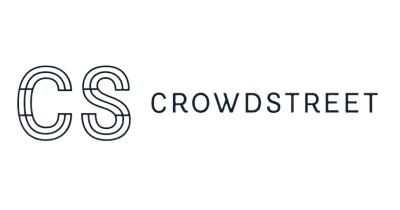Real estate is a great way to accumulate wealth and diversify your portfolio. Managing a property can be a lot of work, though. That’s why it’s great that crowdfunding options like Realty Mogul vs. Fundrise allow you to invest online.
Which real estate platform is best for you? In this article, I’ll discuss the advantages and disadvantages of Realty Mogul and Fundrise to help you make a decision. I’ll also walk you through the requirements, fees, investment types, and how much money you need to have to get started.
Table of Contents
About Realty Mogul
Typically, investing in commercial real estate is complicated. You need a lot of money and expertise to invest in it, but not with Realty Mogul. As one of the world’s largest real estate investment platforms, Realty Mogul makes it easy to invest in commercial real estate.
To date, Realty Mogul has raised over $500 million since 2012. Realty Mogul opens up opportunities to invest in commercial deals worth 10s of millions of dollars. It’s open to mainly accredited or high net worth individuals interested in real estate, although they have two portfolios for non-accredited investors.
Need a flexible way to invest in real estate?
I recommend checking out Realty Mogul whether you’re an accredited or nonaccredited investor.
Realty Mogul Pros and Cons
Pros
- Thorough vetting – Realty Mogul thoroughly vets all properties, with less than 10% of them making it through to investors. They have a robust process that singles out only the best properties to ensure investors get a great return on their investment.
- Frequent distributions – Investors typically receive monthly or quarterly dividend distributions, but it varies by investment.
- Multiple ways to invest – Investors can invest in the debt or equity side of commercial real estate. Debt investments provide a fixed rate of return, and equity investments have higher risk but often greater rewards.
- Options for all types of investors – There are investment options for both accredited and non-accredited investors.
Cons
- High minimum investment – Investors need a minimum of $5,000 to invest in Realty Mogul, and you must be an accredited investor in most cases.
- Long-term investments – Many of the investment opportunities are long-term. Some investments are as long as ten years.
- Not a lot of options for non-accredited investors – Many of the investments are for accredited investors only.
About Fundrise
Unlike Realty Mogul, Fundrise is open to all investors and requires a minimum investment of just $10. Fundrise focuses on private real estate deals, funding them with crowdfunding. They focus on both debt investments (you’re the bank) and equity investments (you have ownership in the property).
Fundrise’s goal is to either buy an undervalued property, fix it up and flip it for equity investors or buy a property and fix it up for greater cash flow and dividends. Fundrise offers several portfolios, each of which has a different risk tolerance and returns depending on your goals.

Fundrise Pros and Cons
Pros
- Low investment requirements – Investors can jump into real estate investing with as little as $10
- Diverse portfolio options – There’s a portfolio for everyone. Whether you’re looking for long-term slow and steady returns or short and fast gains, they’ve got you covered.
- A low barrier to entry – Anyone can invest in real estate without physically handling the properties.
- No need to be accredited – Anyone can invest in Fundrise, no matter their net worth.
Cons
- Long-term investments – Most investments aren’t liquid for at least five years. You should only invest money you won’t need for at least that long.
- Lack of transparency – Fundrise makes it seem like they are transparent with their fees, and they’re easy to understand, but once you invest with them, it looks like fees pop out of nowhere.
- Investors must do their due diligence – Unlike other platforms, investors have to do the due diligence on the properties themselves, which is time-consuming and complicated.
Unique Realty Mogul Features
Public REITs for non-accredited investors
Non-accredited investors can invest in Realty Mogul if they invest less than 10% of their net worth. Non-accredited investors have two investment options:
- MogulREIT I: This public non traded REIT invests in commercial real estate on both the debt and equity sides. It invests in retail, multi-family, and office investments mostly and pays dividends monthly.
- MogulREIT II: This public nontraded REIT invests in multifamily properties on both the debt and equity sides. This REIT focuses more on the equity portion of the investment and pays dividends quarterly.
Opportunities to Invest in Individual Real Estate
Accredited investors only can invest in individual real estate properties. The Private Placement deals require a minimum investment of $15,000 to $50,000 and an investment period of 3 to 7 years.
Strong Data
Realty Mogul doesn’t just take a stab in the dark on an investment property and hope for the best for its investors. Instead, they invest a lot of money and time in the proprietary software and data scientists used to vet properties thoroughly.
Quarterly Distributions
Even though most of the Realty Mogul investments are long-term, a majority of them pay quarterly distributions. Investors can reinvest the distributions or withdraw them.
Read more at: Multiple Streams of Income to Diversify Your Wealth and Best Alternative Investments of 2025.
Unique Fundrise Features
Seven different eREITs
eREITs are funds invested in commercial real estate for investors. It could be offices, multi-family units, and retail properties, or a mix of all three. Fundrise offers location-specific and goal-specific eREITs allowing you to invest throughout the country and for various goals.
Exit options
Even though investing in real estate is highly illiquid, Fundrise makes it slightly more liquid by offering redemptions. Of course, they have the sole discretion regarding whether they’ll buy back your shares or not, but if they do, there’s up to a 3% fee to do so.
When you first invest with Fundrise, they give you a free 90-day redemption window. This allows you to try Fundrise risk-free. If you don’t like it, you can get your money back right away. If you stick it out and then need/want to sell, you’ll need to initiate a buyback.
Realty Mogul vs. Fundrise: Fees
Realty Mogul
Realty Mogul has a much higher minimum investment requirement and fees between 1% to 1.25%. Each asset class has different fees, and all investors should read the fine print before choosing an investment. On average, private placement investments have a 1% fee, MogulREIT I has a 1% fee, and Mogul REIT II has a 1.25% fee.
Fundrise
Fundrise requires a much smaller investment of just $10 for beginners and charges a 1% annual fee, but that’s not their only fee. They may also charge other fees, including development fees and liquidation fees.
Looking for Realty Mogul and Fundrise alternatives?
Your next stop should be checking out Crowdstreet — they’re the leading real estate investing platform.
Realty Mogul vs. Fundrise: Who are they for?
Realty Mogul is for high net-worth investors and accredited investors. While they are one and the same, not all high net-worth investors are accredited. Investors looking for unique real estate investment opportunities without dealing with the physical properties do well with Realty Mogul.
Just make sure you’re prepared for a long-term and illiquid investment. Most Realty Mogul investments pay dividends to keep the cash flow going, but you won’t see your initial investment for several years.
The Bottom Line on Realty Mogul vs. Fundrise
Investing in real estate is a great way to diversify your portfolio. Realty Mogul and Fundrise make it easier to invest in real estate without needing much capital or the time to manage a physical property. Make sure you only invest funds you can let sit for three to 10 years, depending on the investment since neither Realty Mogul or Fundrise investments are highly liquid.
Disclosure: We earn a commission for this endorsement of Fundrise.


